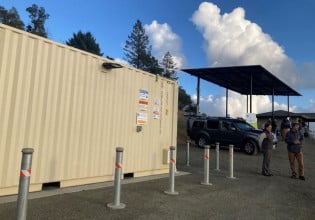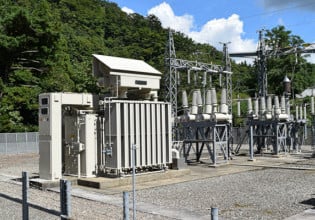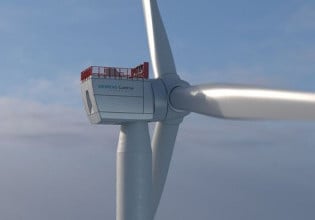Electric Trucking Gains Momentum With Industry Investments
Three major developments in electric trucks breathe life into the electric trucking industry.
The trucking industry is a major contributor to global greenhouse gas emissions. The sector's emissions are a byproduct of fuel combustion, vehicle emissions, and the energy-intensive nature of truck manufacturing. As global trade volumes continue to grow, the demand for freight transportation is expected to increase, potentially leading to a rise in emissions unless significant changes are made.
Reducing carbon emissions in the trucking industry has been challenging. However, recent developments in electric trucks could renew efforts in decarbonizing truck transportation.
Tesla electric semi-truck. Image used courtesy of Tesla Semi
Loblaw's Expansion With Tesla Semis
Loblaw, a leading grocery chain, recently expanded its electric semi-truck fleet, incorporating 25 Tesla Semis into its operations.
Loblaw electric semi. Image used courtesy of Loblaw
The Tesla Semi is known for its exceptional range of up to 500 miles on a single charge and its advanced performance features. The company will be integrating these electric semis into its existing eCascadia fleet, which already consists of four electric semis making short-distance deliveries to over 200 Loblaw stores.
To reach carbon-neutral transport by 2030, Loblaw is expected to significantly decrease the use of fossil fuels and lower the carbon footprint associated with the company's extensive logistics operations.
Einride and Mars' Electric Freight Initiative
In another move, Einride, a leader in electric and autonomous transport, has partnered with Mars to launch a new electric freight project.
The project focuses on integrating Einride's electric trucks into Mars' supply chain to significantly reduce greenhouse gas emissions. Specifically, the companies will be deploying 300 electric heavy-duty trucks across Europe.
An Einride truck used for Mars. Image used courtesy of Mars
Einride's electric trucks are equipped with sophisticated technology enabling zero-emission electric propulsion and autonomous driving capabilities. This integration could enhance the efficiency of Mars' supply chain by optimizing routes, reducing transit times, and minimizing the need for human intervention in certain logistics operations. Using autonomous electric trucks could also lead to significant cost savings in the long run through reduced fuel consumption and lower maintenance costs compared to traditional diesel trucks.
The new initiative is considered the largest electric transport initiative ever in the industry and is expected to save 20,000 metric tons of carbon dioxide emissions each year by 2030.
California's Electric Truck Charging Infrastructure
California launched an initiative to bolster its electric truck charging infrastructure by developing three new charging depots by WattEV.
Supported by $75.6 million in federal grants, this investment is designed to increase the availability of reliable and fast-charging infrastructure. By setting up depots equipped with advanced charging technology, including megawatt chargers capable of rapid charging, California is laying the groundwork for a seamless transition to electric trucking.
A WattEV truck. Image used courtesy of WattEV
These depots, equipped with solar panels and battery storage, will offer 258 charging points, including megawatt chargers for rapid charging. The depots will be strategically placed along key freight corridors and critical junctures, such as the California-Arizona border. The hope is that this charging station network will enable electric trucks to cover longer distances without the range anxiety that has historically limited their use to shorter, regional routes.
Progress in Electric Trucking
All three trucking advancements highlight the dynamic progress in the electric trucking industry. Each initiative contributes to reducing carbon emissions and transitioning to sustainable transportation solutions. As these projects come to fruition, they can lead the way for broader adoption of electric trucks across various sectors, shifting toward cleaner, more efficient freight and logistics operations.










